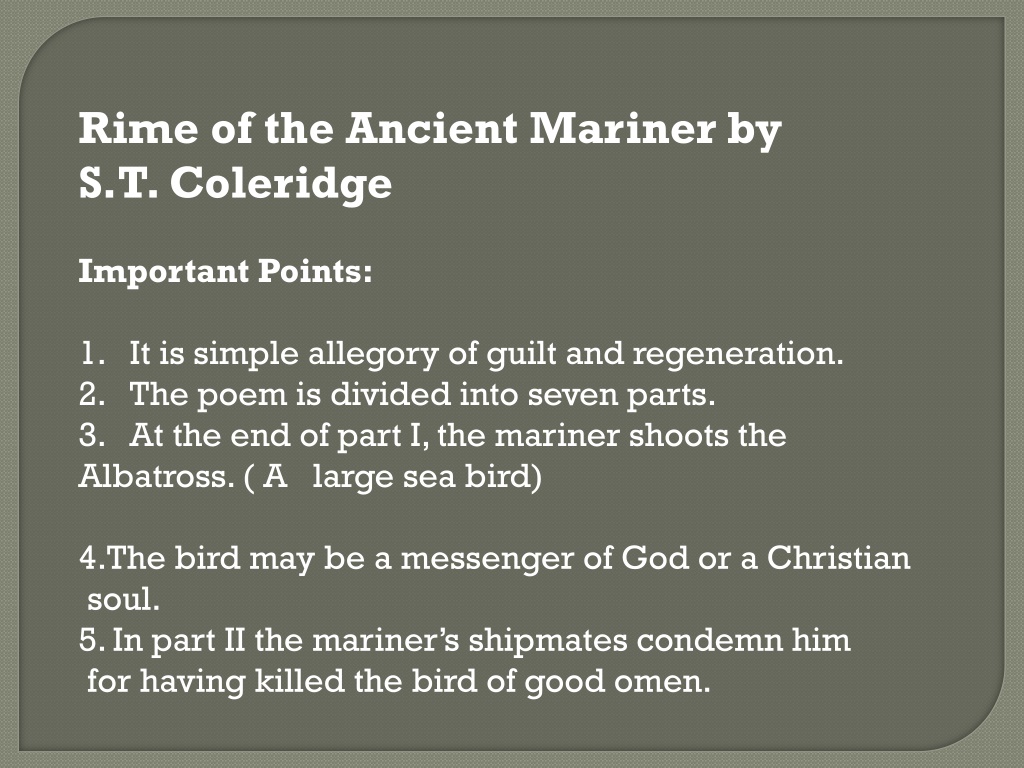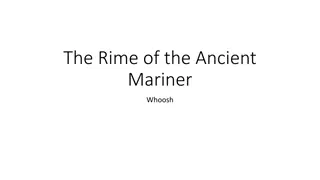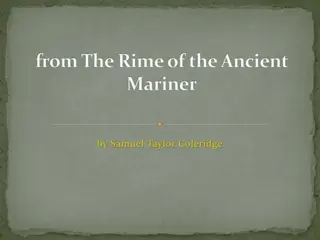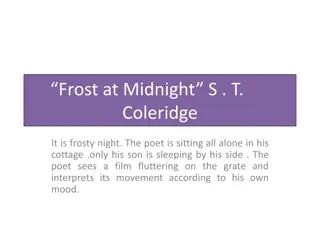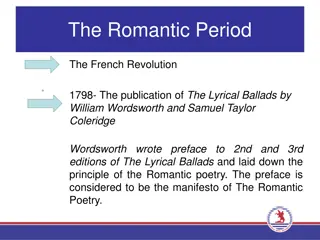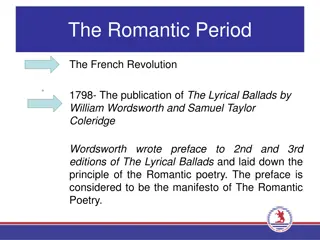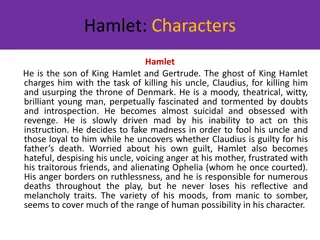Analysis of "Rime of the Ancient Mariner" by S.T. Coleridge: A Journey of Guilt and Redemption
This analysis of "Rime of the Ancient Mariner" by S.T. Coleridge delves into the allegory of guilt and redemption portrayed in the poem divided into seven parts. It explores the consequences of the mariner shooting the Albatross, the themes of death and revival, and his reconciliation with God's creation. Coleridge's storytelling prowess, the ballad form, and the mariner's voyage around polar regions add depth to this haunting narrative.
Download Presentation

Please find below an Image/Link to download the presentation.
The content on the website is provided AS IS for your information and personal use only. It may not be sold, licensed, or shared on other websites without obtaining consent from the author. Download presentation by click this link. If you encounter any issues during the download, it is possible that the publisher has removed the file from their server.
E N D
Presentation Transcript
Rime of the Ancient Mariner by S.T. Coleridge Important Points: 1. It is simple allegory of guilt and regeneration. 2. The poem is divided into seven parts. 3. At the end of part I, the mariner shoots the Albatross. ( A large sea bird) 4.The bird may be a messenger of God or a Christian soul. 5. In part II the mariner s shipmates condemn him for having killed the bird of good omen.
6. In part III, Death and life-in-death play at the dice. All the shipmates die .One by one leaving the mariner alone on that sea. 7. In part IV, The mariner has to face the curse in the dead men s eyes. But he does not die. He is able to pray and the albatross falls into the sea. This marks partial revival. 8. In part V, The mariner is able to sleep, and when he gets up, long awaited rains bring him comfort. In a way, he has reconciled himself to God s creation. 9. In part VI, the mariner is haunted by the presence of hid dead comrades.
10. At the end of the poem, the mariner reaches back his own country. He meets the holy hermit, confesses his guilt. 11. Thus the poem narrates the experience of an ancient Mariner voyaging around polar regions in unknown seas. 12. Coleridge is superb in story-telling. As a narrator he exercises the same hypnotic spell on his listeners as the mariner creates on the wedding guest. 13. The poem is written in the ballad form.
